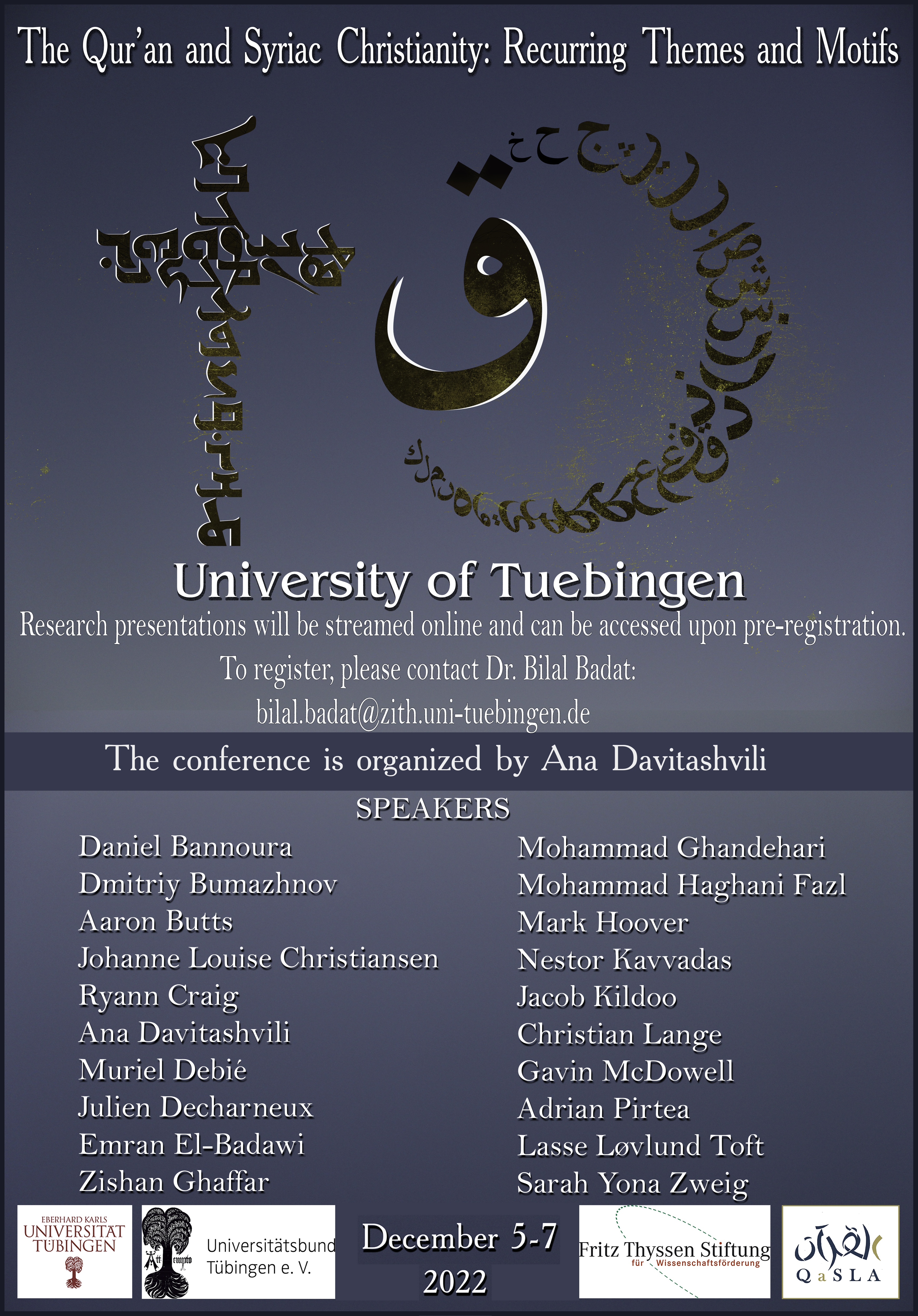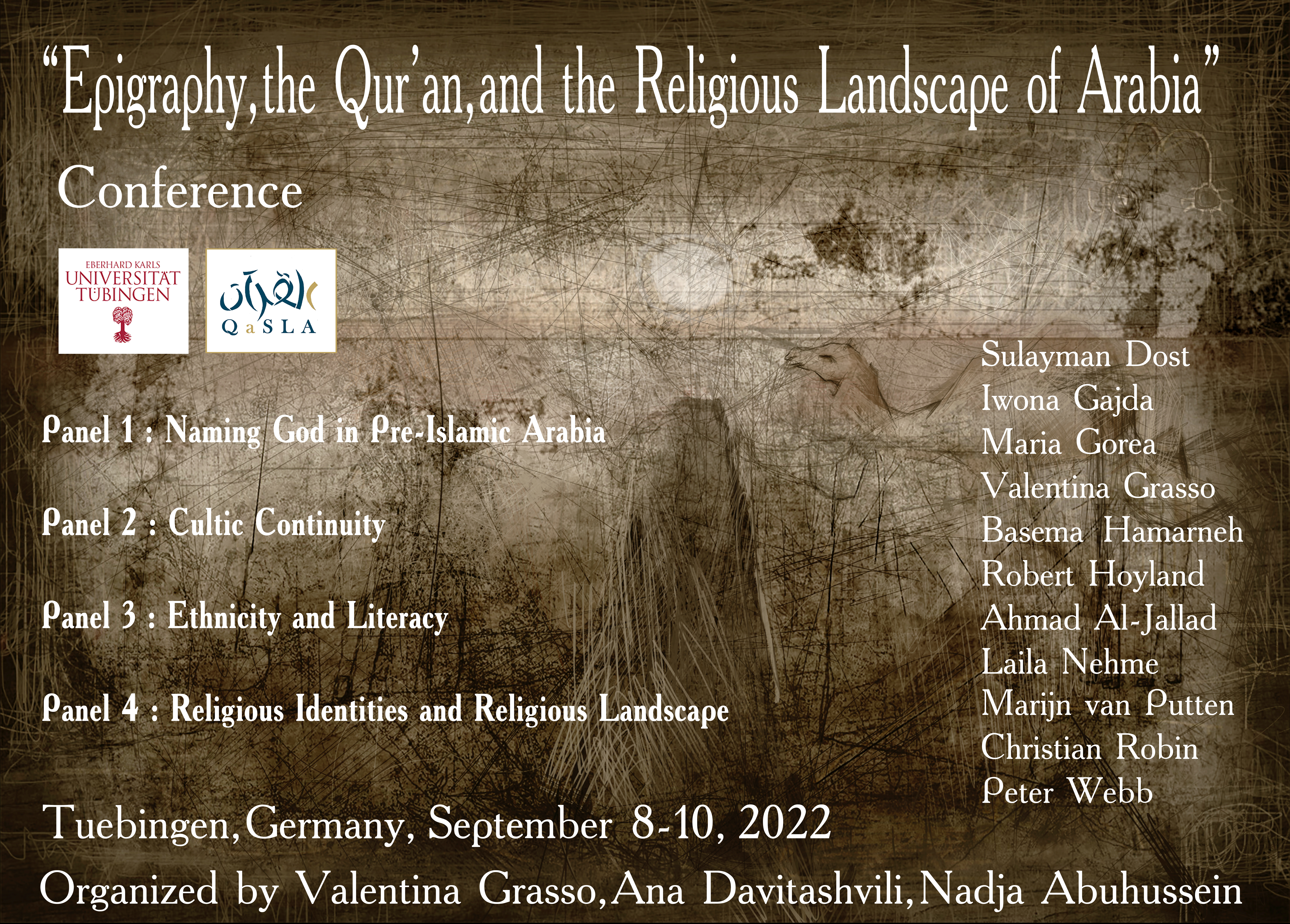Streamed Conference “The Qurʾān and Syriac Christianity: Recurring Themes and Motifs” December 5-7

The study of the Qurʾān in light of pre-Islamic Syrian Christian texts has a long tradition among Western scholars. Indeed, the profound significance of Syriac for a better understanding of the Quran has been a recurring theme in academic exchanges. Still, despite the importance of Syriac, a conference devoted to the relation of the Qurʾān with Syrian Christian traditions has yet to take place. In line with existing scholarship, the conference The Qurʾān and Syriac Christianity: Recurring Themes and Motifs takes stock of this trend while providing new profound insights into the continuities of the Qurʾān with Syriac Christianity.This three-day international conference pioneers in its focus on the relationship between the Qurʾān and pre-Islamic Syriac Christianity. By taking recurring themes and motifs as a starting point, the conference emphasizes differences between the Quran and Syrian Christian traditions as well. As the conference seeks to investigate how the Qurʾān reacts to pre-Islamic Syrian Christian traditions, approaches to be taken and themes to be addressed during the three-day event include:
1. The Qurʾān ‘ s employment and reshaping of themes and motifs known from Syrian Christianity from the advent of Syriac literature to the emergence of East (Nestorian) and West (Jacobite, Miaphysite) Syrian traditions
2. The Qurʾān’s conversation with pre-Islamic West or East Syrian traditions in particular
3. The co-relation of Meccan and Medinan layers of the Qurʾān according to the Nöldekean chronology or its further refinements by Angelika Neuwirth and Nicolai Sinai with West or East Syrian traditions
4. The relationship of the intra-qurʾānic parallels with divergent Syriac traditions
To explore the co-relation of the Quran with Syriac traditions, the conference brings together an international group of specialists in Syriac Christianity, Eastern Christianity, and Semitic Studies more broadly, experts in comparative religions and religious studies, as well as scholars of the Quran , Islamic theology, and Islamic Studies. This wide range of presented fields provides us with an opportunity to analyze the connections of the Qurʾān to pre-Qurʾānic Syrian Christian traditions from different angles and with diverse methodological tools. The conference also serves as a meeting place for early career scholars and established, senior academics.
Research presentations will be streamed online and can be accessed upon pre-registration. To register, please contact Bilal Badat: bilal.badat @zith.uni-tuebingen.de
The conference is organized by Ana Davitashvili .

 The University of Tübingen Qur’an as a Source for Late Antiquity Research Project team announces “
The University of Tübingen Qur’an as a Source for Late Antiquity Research Project team announces “